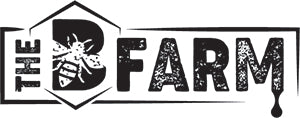One of the most important things you can do to maintain a healthy bee colony is to protect it from diseases, parasites, and other problems. You don’t have to constantly be on top of your hives, but the key to protecting your bees is to catch issues before they do too much damage. Learn about the most common honeybee problems and how to fix them.
Colony Collapse Disorder
Colony collapse disorder (CCD) is a strange phenomenon in which most of the hive disappears, leaving the queen and a few worker bees to fend for themselves. It causes sudden failure within the beehive, and most colonies don’t survive it. There’s no one specific cause, and researchers are still debating the primary cause, but you can do your best to prevent it through beekeeping best practices.
Pesticides
Although pesticides work very well to protect plants from other insects and animals, they can also affect pollinators such as honeybees. To protect your colony from the effects of pesticides, try to avoid using them on flowers and other plants with which the bees may come in contact. Instead, opt for natural solutions that keep pests away but that won’t harm your bees.
American Foulbrood Disease
Paenibacillus larvae bacteria cause American foulbrood disease (AFD) by killing sealed broods. AFD is highly contagious, and it can spread throughout the hive and even between colonies. With that in mind, you should act immediately if you suspect your colony is infected. There’s no definite cure for the disease, but antibiotics can slow it down.
Varroa Mites
Varroa mites are the number one bee-killers because of their ability to spread diseases like wildfire. You can’t prevent a varroa infection, but there are several mite treatments you can buy. Additionally, you can purchase varroa-resistant bee breeds to increase your colony’s chances of survival.
Understanding these common honeybee problems and how to fix them is an imperative part of being a good beekeeper. If you’re looking to become one, The B Farm has honeybees for sale in Bunkie, LA. The world needs more people to protect the bees, and the best way to do so is to become a beekeeper and look after your own colonies. For more information about which bees we have available, contact us today at (978) 384-0356.
